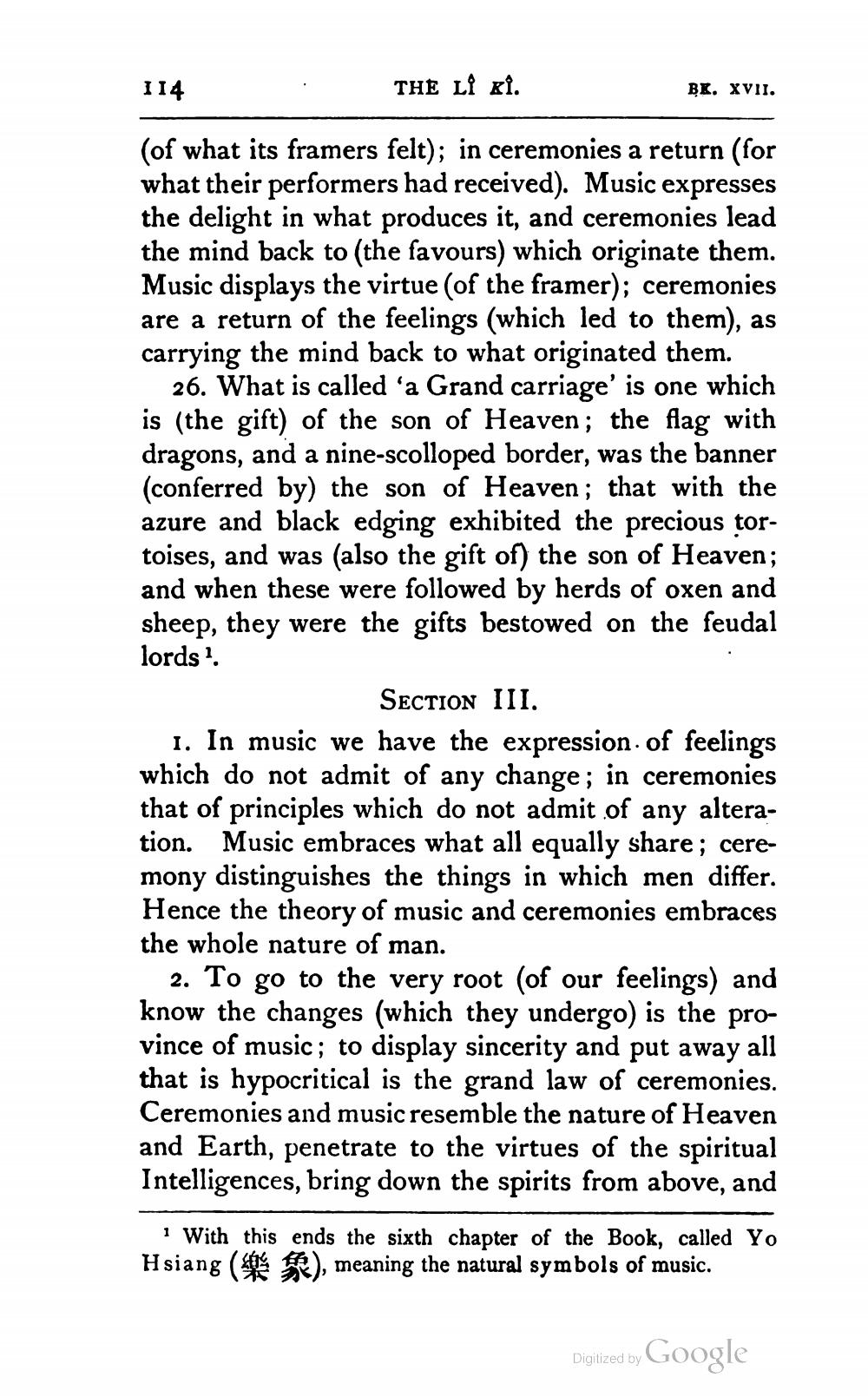________________
114
THE LÎ xi.
BK. XVII.
(of what its framers felt); in ceremonies a return (for what their performers had received). Music expresses the delight in what produces it, and ceremonies lead the mind back to the favours) which originate them. Music displays the virtue (of the framer); ceremonies are a return of the feelings (which led to them), as carrying the mind back to what originated them.
26. What is called 'a Grand carriage' is one which is (the gift) of the son of Heaven; the flag with dragons, and a nine-scolloped border, was the banner (conferred by) the son of Heaven; that with the azure and black edging exhibited the precious tortoises, and was also the gift of) the son of Heaven; and when these were followed by herds of oxen and sheep, they were the gifts bestowed on the feudal lords?
Section III. 1. In music we have the expression of feelings which do not admit of any change; in ceremonies that of principles which do not admit of any alteration. Music embraces what all equally share; ceremony distinguishes the things in which men differ. Hence the theory of music and ceremonies embraces the whole nature of man.
2. To go to the very root (of our feelings) and know the changes (which they undergo) is the province of music; to display sincerity and put away all that is hypocritical is the grand law of ceremonies. Ceremonies and music resemble the nature of Heaven and Earth, penetrate to the virtues of the spiritual Intelligences, bring down the spirits from above, and
1 With this ends the sixth chapter of the Book, called Yo H siang ( ), meaning the natural symbols of music.
Digitized by Google




